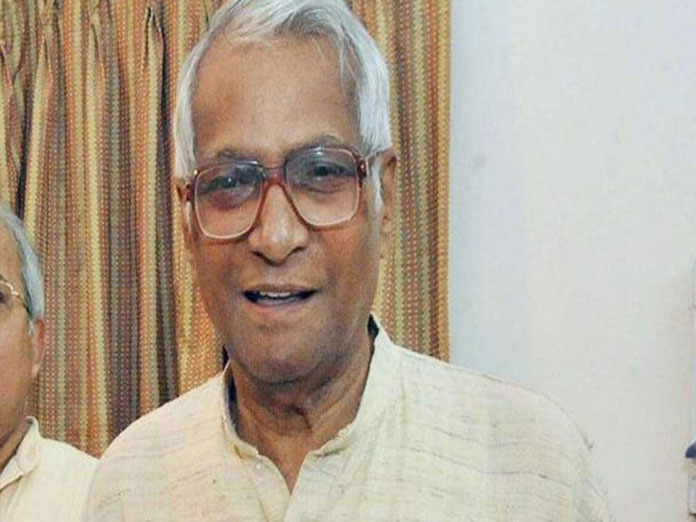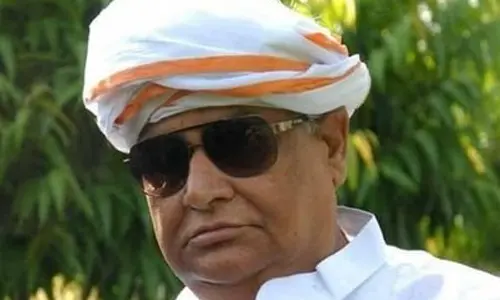Jobless George slept on footpaths in his 'karmabhoomi' Mumbai

Like lakhs of hopefuls, George Fernandes had come to Bombay now, Mumbai aged barely 19 looking for a job and spent many a nights on the mean streets, fighting roaches and rodents, but never complaining, oldtimers reminisced
Mumbai: Like lakhs of hopefuls, George Fernandes had come to Bombay (now, Mumbai) aged barely 19 looking for a job and spent many a nights on the mean streets, fighting roaches and rodents, but never complaining, old-timers reminisced.
Unlike Oliver Twist, he never "asked for more" but went on to earn it the hard way with his own skills, talent and leadership traits, learning everything en route - even 10 languages!
He eventually became "George the Giant-killer" when he vanquished the then 'Uncrowned King of Bombay' the veteran Congress leader S.K. Patil in the 1967 elections.
From such humble beginnings, started as a proof-reader in a newspaper, he started unionism with the influence of persons like Placid D'Mello and later Ram Manohar Lohiya, battling for the workers' rights, taximen, government employees, often with opposing forces like the upcoming Shiv Sena wooing the locals with its Sons of the Soil campaign.
After years of defending workers, decades later Fernandes went on to 'defend' the country as the flamboyant Defence Minister of India, protecting her from the Kargil incursions and flexing muscles with the Pokhran nuclear tests.
Though his Mangalore-based middle-class family had dreams of him becoming a priest at a seminary there, Fernandes was lured by another call -- that of public service -- and plunged headlong into the Socialist Movement and trade unionism that was ideologically fashionable when the country had just attained Independence a couple of years earlier.
Over the next two decades or so, he became the "striking George", organising a series of strikes, including the famous 20-day All-India railway strike of 1974 when he was President of All India Railwaymens Federation, with many other unions and organisations supporting him.
That historic action which crippled the government catapulted him to global fame as the political establishment was brought to its knees and was regarded as one of the key factors leading to the Emergency, imposed by the then Prime Minister Indira Gandhi, a year later.
Fiercely independent-minded, Fernandes even fought the Emergency, 'disappeared' in Mumbai when an arrest warrant was issued, later sneaked to Baroda (now, Vadodara), meeting other like-minded and other places chalking out strategies for the defeat of the autocratic rule of Indira Gandhi, and was part of the famed Baroda Dynamite Case of 1976.
During his early days in unionism, he spent several spells in jails and was elected a corporator twice to the Bombay Municipal Corporation (BMC), which spurred him to take up the challenge against Patil in 1967, trouncing him and killing his (Patil's) political career.
By the early 1970s, he assumed a larger national role in active politics first with the Samyukta Socialist Party, later the Janata Party, the Samata Party and the National Democratic Alliance, winning nine Lok Sabha elections from 1967-2004, and shifting to capital (Delhi) politics.
As Mumbai transformed into a global financial centre with the private sector becoming a big employer, the militant form of trade unionism practiced by Fernandes gradually faded away to more industry-oriented actions like the great year long textile strike of 1982 spearheaded by the late medico, Datta Samant, but now such actions are practically extinct.
Fernandes, aged 88, passed away on Tuesday after a prolonged battle with various illnesses including Alzheirmer's Disease, leaving behind a rich legacy of contributions as a trade union leader, a media person, champion of workers and human rights, a politician and an administrator.




